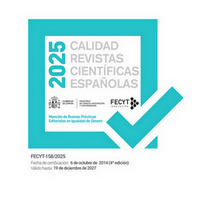Learning to serve in hospitals for a dowry: Prolegomena of youthful female work in Sevillian hospitals in the Old Spanish Regime
DOI:
https://doi.org/10.24197/ihemc.41.2021.229-262Keywords:
Dote, Sevilha, Patronato, HospitalAbstract
This article deals with an unknown reality, but practiced in some Castilian hospitals, which was to give marital dowries to their maids. The articles’problem is to determine why the dowries for work appeared and why the founders of hospitals did not create dowries for their workers and preferred to give dowries to orphaned and poor women in the different brotherhoods created for this purpose. In Seville, one of the first hospitals on record that gave dowries to its workers was the San Hermenegildo hospital and soon followed the Cinco Llagas hospital, both hospitals shared two of their patrons. Of the patronages created in these hospitals for pious works, only one in each of them was created to provide dowries to the maids who worked in such hospitals. The other patronages left it at the will of its authorities. Finally, it is proposed to know the differences and functions performed by the young women who worked to obtain the dowries and the process to obtain it within these emblematic Andalusian hospitals during the Old Regime
Downloads
Downloads
Published
Issue
Section
License
All the articles published in Investigaciones Históricas, época moderna y contemporánea will have a Creative Commons Attribution 4.0 International License (CC BY 4.0).
The journal allows the authors to retain publishing rights. Authors may reprint their articles in other media without having to request authorization, provided they indicate that the article was originally published in the journal Investigaciones Históricas, época moderna y contemporánea.



